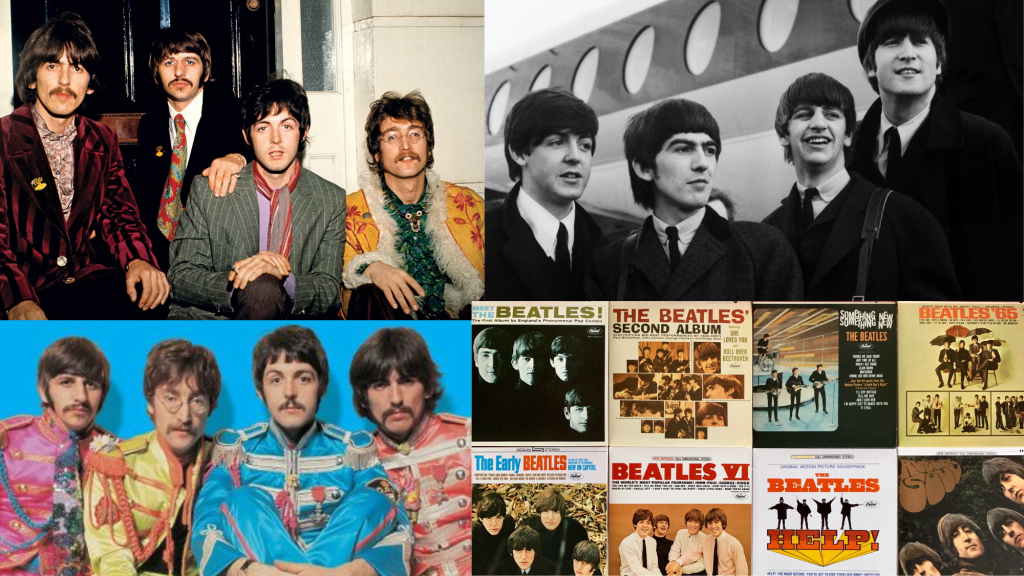The Beatles Era wasn’t only about hit songs; it was a time of big ideas, fresh sounds, and a new way of thinking. Starting in the early 1960s, four young men from Liverpool, namely John, Paul, George, and Ringo, took over radios and hearts around the world.
The Beatles Era shaped how people listened to music and even how they lived. These four guys gave us some of the most loved songs ever made.
We’re more popular than Jesus now, I don’t know which will go first—rock ‘n’ roll or Christianity
This Statement by John Lennon in 1966 sparked rage and protests around the world. But what made him say this kind of Statement in front of the Whole Planet?
Let’s find out.
Meet The Beatles
The Beatles became the famous quartet in 1962, though the band’s origins date back to the late 1950s when John Lennon formed it in 1956 with the name The Quarrymen along his school friends at Quarry Bank High School in Liverpool.
Being a part of the rock and pop genre, their early songs were full of fun and love, and later ones filled with deeper meaning. In 1964, the album Meet The Beatles! was released in the U.S., helping spark what people call Beatlemania.
The Beatles members:
- John Lennon – Known for his sharp mind and strong voice. He often wrote songs that made people think.
- Paul McCartney – Played bass and sang with a smooth, wide-ranging voice. He wrote many of the group’s biggest hits.
- George Harrison – The quiet one, he played lead guitar and later brought new musical ideas into their songs.
- Ringo Starr – The drummer with a steady beat and a friendly style. He also sang on a few songs that fans still enjoy.
Their music started simple, but over time it grew more thoughtful and creative. Meeting The Beatles was more than hearing a band, it was the start of something the world had never seen before.
Early Era: The Beginnings
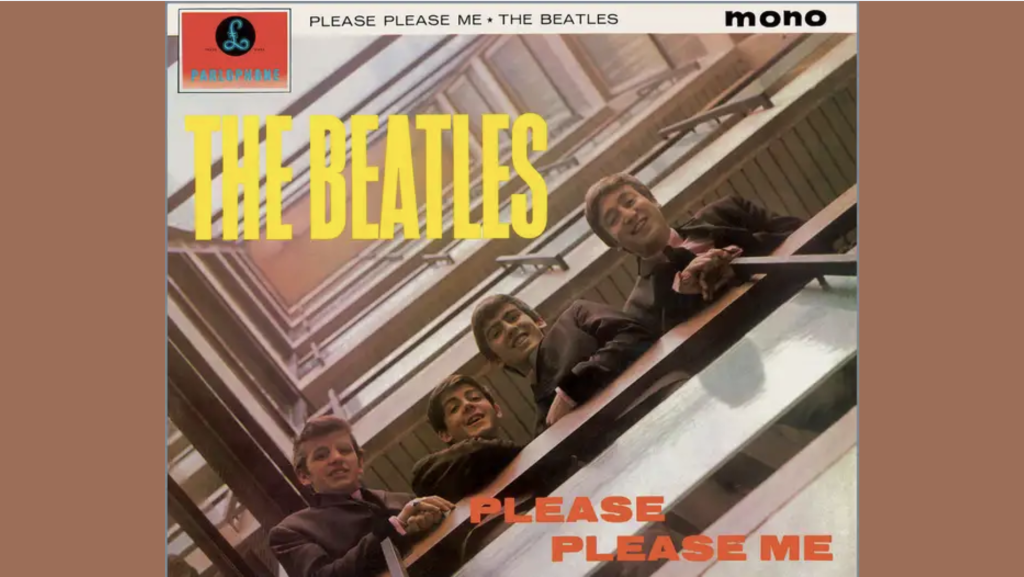
The early era of The Beatles lasted from 1960 to 1963, when the band transitioned from a local Liverpool group into a national sensation.
In 1960, the group, now called The Beatles, began performing in small clubs in Liverpool and Hamburg, Germany.
They played long hours every night during their stay at Hamburg which was crucial in shaping their tight musicianship and stage presence. Their music at this time was simple rock and roll, heavily influenced by American artists like Chuck Berry and Elvis Presley.
In December 1961, The Beatles met Brian Epstein, who became their manager and helped shape their image. In 1962, they signed with EMI Records and met producer George Martin.
That same year, Ringo Starr replaced Pete Best, and they released their first single, Love Me Do, which charted in the UK.
Middle Era: The Rise to Fame
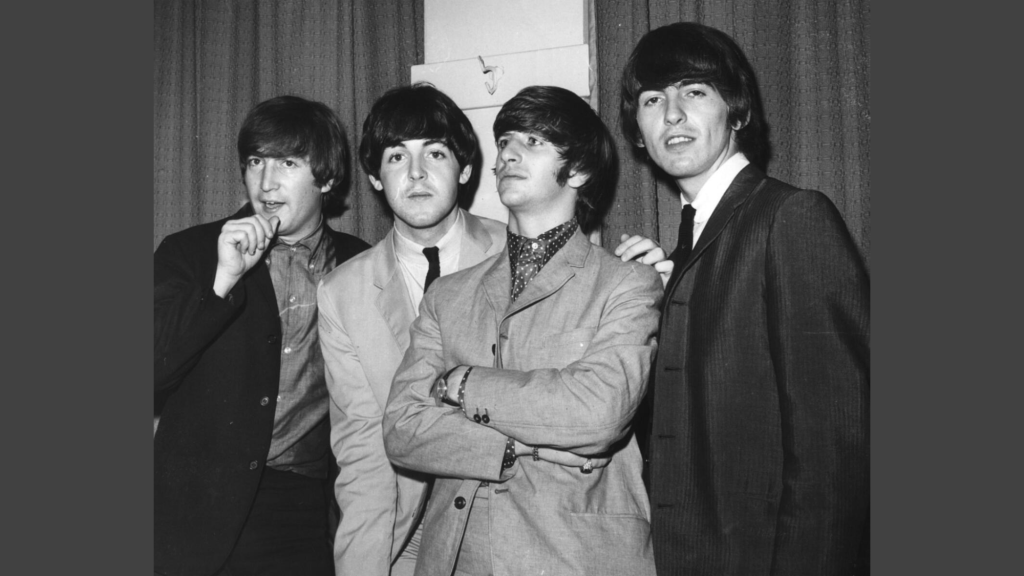
The Middle era of The Beatles is generally considered to last from late 1963 to 1966 (when they stopped touring and focused on studio work).
During this period, The Beatles became famous not just in the UK but worldwide. The release of hits like Please Please Me (early 1963) and She Loves You (mid-1963) ignited Beatlemania, with screaming crowds, massive record sales, and their image appearing on countless products.
In February 1964, The Beatles performed on The Ed Sullivan Show in the U.S., with an estimated 73 million viewers. This appearance established them in the American market and solidified their status as global superstars.
By August 1966, The Beatles had sold 150 million records worldwide, a figure widely reported in the press at the time and supported by industry sources.
This tally includes singles, EPs, and albums, as the music industry of the era often counted discs or units rather than just albums or singles alone.
Late Era: A Legacy Beyond Time
The late era of The Beatles lasted from 1967 to 1970, during which they became a global phenomenon, influencing not just music but also fashion, art, and culture.
They stopped touring and focused on studio work, releasing some of their most famous albums:
- Sgt. Pepper’s Lonely Hearts Club Band (1967)
- The White Album (1968)
- Abbey Road (1969)
- Let It Be (1970)
Disagreements and personal goals pulled the group apart, and they officially disbanded in 1970. Even after their breakup, their songs and impact never faded.
Many have called them the most influential band ever, and their journey from rising stars to global icons remains one of the most remarkable stories in music history.
The Controversy
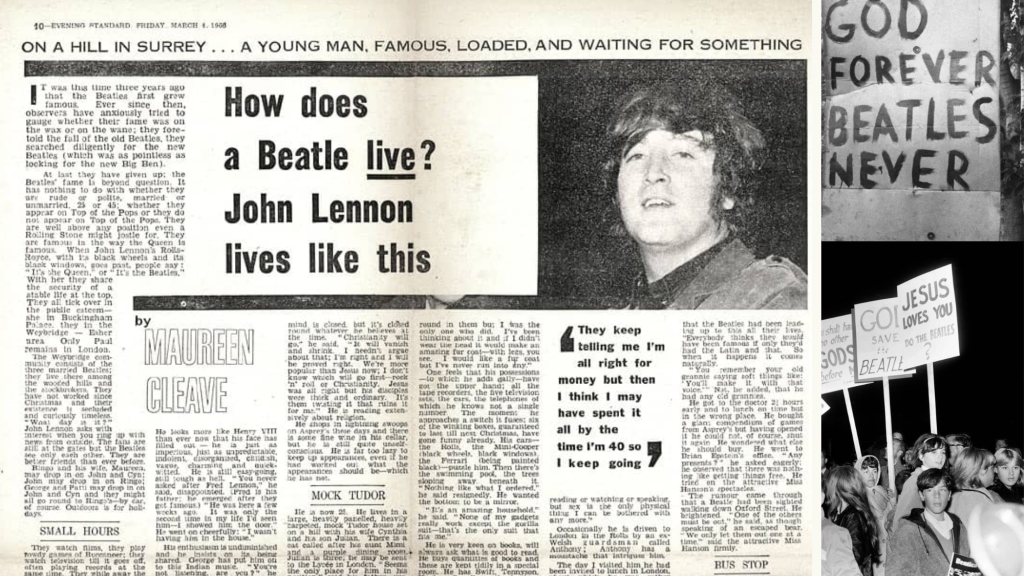
The Beatles were surely adored by millions, but that didn’t mean they were strangers to controversy. In 1966, John Lennon’s remark during an interview with the London Evening Standard in which he said:
Christianity will go. It will vanish and shrink. I needn’t argue about that; I’m right and I’ll be proved right. We’re more popular than Jesus now; I don’t know which will go first, rock ‘n’ roll or Christianity. Jesus was all right but his disciples were thick and ordinary. It’s them twisting it that ruins it for me.
This sparked outrage, especially in the United States. When his interview was reprinted in an American teen magazine, Christian communities reacted strongly, radio stations banned their music, their records were burned throughout the Country, and the Ku Klux Klan even wrecked their concerts.
Lennon later apologized, clarifying he meant no disrespect to religion, but the backlash was intense, impacting their 1966 US tour and adding to the group’s growing discomfort with fame and touring.
Timeless Hits
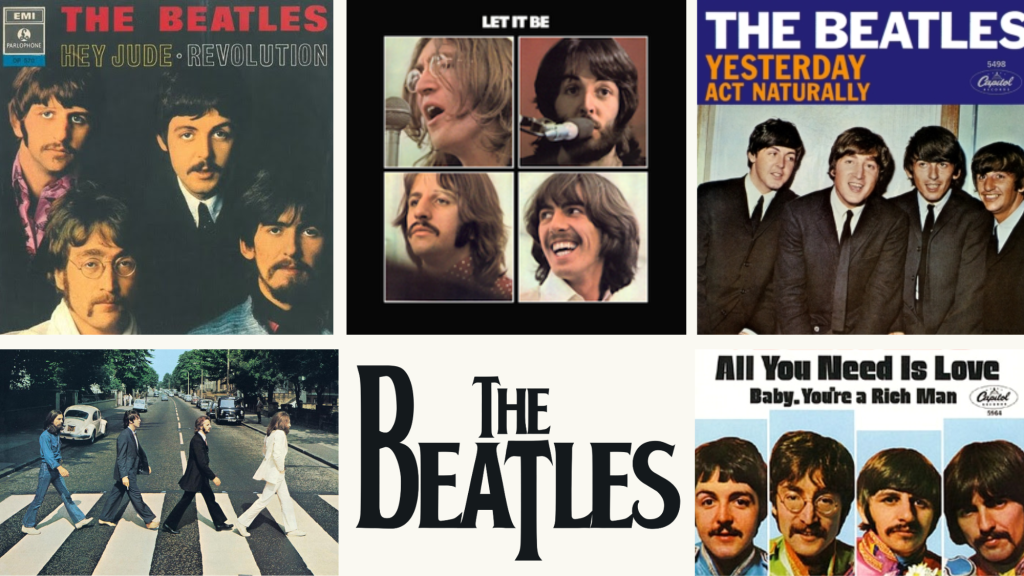
The Beatles created music that continues to be enjoyed by people of all ages and backgrounds. Many of their tracks became massive hits and are still played around the world. Their music defined how songs can touch hearts and inspire listeners.
Over the years, The Beatles have sold more than 600 million records worldwide, making them one of the most successful bands in history. Their influence is seen in the way new generations discover and cherish their songs.
Here are some of their timeless hits, with the year they were released and brief notes:
- Hey Jude (1968) – A comforting anthem, written by Paul McCartney, that topped charts globally and became one of their most beloved songs.
- Let It Be (1970) – A gentle, uplifting song offering hope and calm during difficult times, released as one of their final singles.
- Yesterday (1965) – One of the most covered songs in history, its gentle melody and theme of change and memories have made it a classic.
- Come Together (1969) – Known for its catchy, bluesy groove, featured on Abbey Road.
- All You Need Is Love (1967) – A simple, universal message set to music, performed live to a global audience during the first worldwide TV broadcast.
To End It!
The Beatles Era was more than just a moment in music history; it was a cultural revolution that reshaped how the world heard, felt, and thought about popular music.
Along the way, they faced controversies and endured hard times, but their music was always cherished.
The Beatles were not just a band; they had what we call an era. And though that era ended in the 1970s, decades ago, its impact never did.
Their influence remains stitched in the streets of modern music and culture, proving that legends may part ways, but true artistry never fades.
Frequently Asked Questions
When did The Beatles Form & Break Up?
The Beatles formed in 1960 and officially broke up in 1970, leaving behind a legacy of timeless music.
How Many Number-One Hits did The Beatles have?
The Beatles had 20 number-one hits in the UK and reached number one on the Billboard Hot 100 in the US 21 times, more than any other band.
What was Beatlemania?
Beatlemania was the intense fan frenzy and worldwide popularity that surrounded The Beatles, especially during the mid-1960s
How Many Beatles are Still Alive Today?
As of 2025, Paul McCartney and Ringo Starr are the surviving members of The Beatles.


